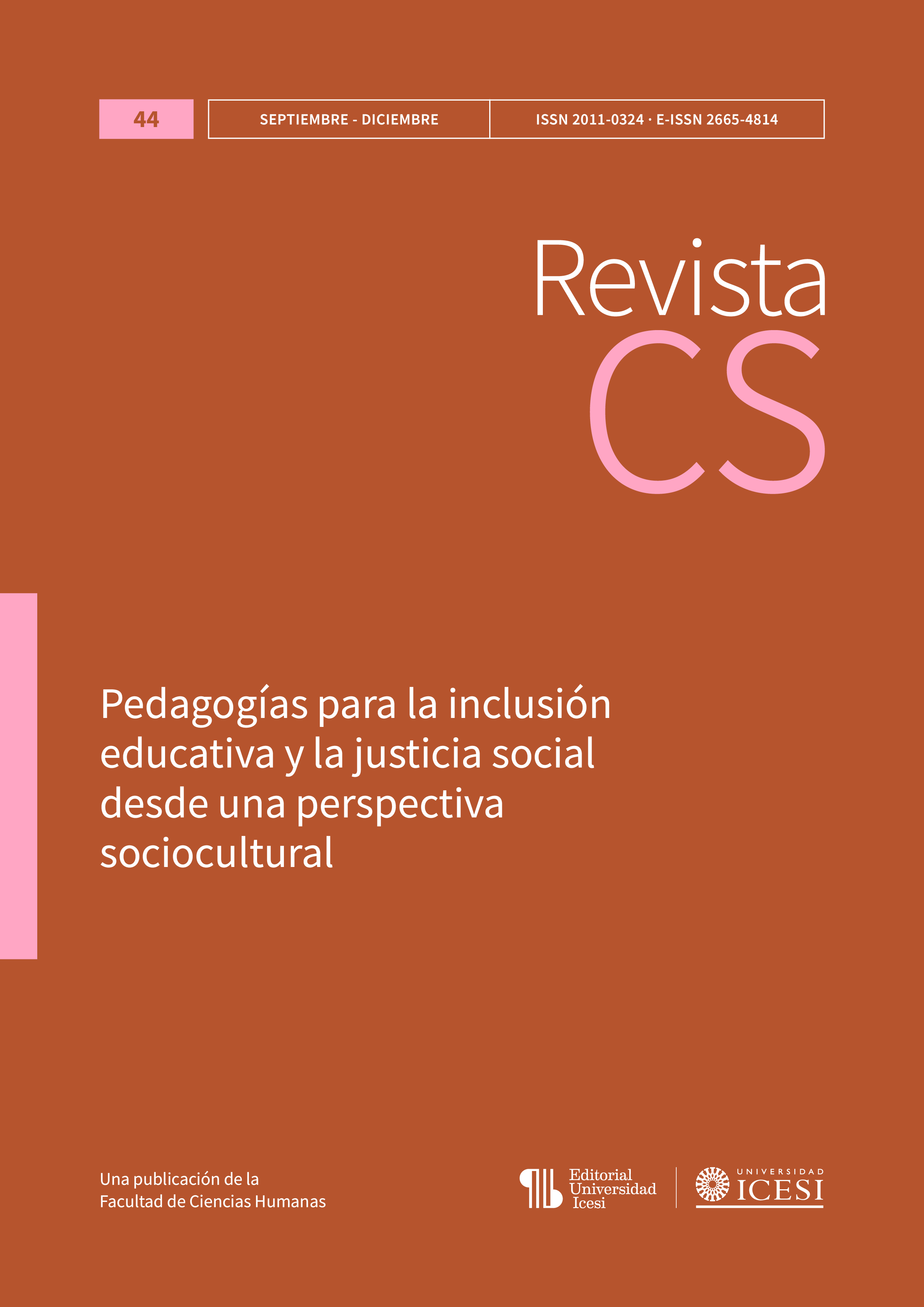Passaport Edunauta: A tool for equity, connectedness, and creation of learning opportunities. An analysis in the light of Connected Learning
DOI:
https://doi.org/10.18046/recs.i44.11Keywords:
Passaport Edunauta, Equity, Connectedness, Connected LearningAbstract
Passaport Edunauta emerges as a community outreach tool, designed to foster learning opportunities and promote equitable access to extracurricular activities by aligning territorial resources with the educational needs of schools. It is promoted by the Jaume Bofill Foundation and the cooperative +Educació in Catalonia. Nineteen territories participated between 2021 and 2022. This article presents the results of the first year of evaluation and a theoretical discussion of the principles of connected learning, with a specific focus on three key dimensions: equity, connectedness, and quality. Data collection was made through tailored surveys aimed at teachers, learners, and Edunauta spaces. These surveys yielded quantitative results, and their analysis was outsourced. The findings underline the need to strengthen connections through targeted interventions and highlight equity as a prominent feature of the tool, as well as the need to conceive it as an ongoing challenge in its deployment.
Downloads
References
Asociación Internacional de Ciudades Educadoras (AICE) (s.f.). Carta de Ciudades Educadoras. Recuperado de https://www.edcities.org/carta-de-ciudades-educadoras/
Coll, César (2000). Política educativa: educación, sociedad, territorio y corresponsabilidad social y ciudadana con la educación. En Informe 2000. Políticas sociales y estado de bienestar en España (pp. 165-187), editado por Juan Antonio Garde. Madrid: Fundación Hogar del Empleado.
Coll, César (2013). El currículo escolar en el marco de la nueva ecología del aprendizaje. Aula de Innovación Educativa, 219, 31-36. Recuperado de https://diposit.ub.edu/dspace/bitstream/2445/53975/1/627963.pdf
Coll, César (2016). La personalización del aprendizaje escolar. El qué, el por qué y el cómo de un reto insoslayable. En Reptes de l’educació a Catalunya. Anuari d’Educació 2015 (pp. 43-104), dirigido por Josep M. Vilalta. Barcelona: Fundació Jaume Bofill.
Coll, César (2018). Procesos de aprendizaje generadores de sentido y estrategias de personalización. En La personalización del aprendizaje (pp. 14-18), coordinado por César Coll. Barcelona: Graó.
Coll, César; Esteban-Guitart, Moisès; Iglesias, Edgar (2020). Aprendizaje con sentido y valor personal.
D’EP Institut (2022). Passaport Edunauta. Territoris que conecten oportunitats. Informe: Resultats de les enquestas curs 2021-22. Inédito.
Engel, Anna; Coll, César (2021). La identidad de aprendiz. El modelo de Coll y Falsafi. Papeles de Trabajo sobre Cultura, Educación y Desarrollo Humano, 17(1), 1-12. Recuperado de https://laboratoriovoces.com/wp-content/uploads/2021/01/EngelColl2021_PTCEDH.pdf
Engel, Anna; Membrive, Antonio (2018). Contextos d’activitat, experiències d’aprenentatge i trajectòries personals. En La personalització de l’aprenentatge (pp. 19-22), coordinado por César Coll. Barcelona: Graó.
Esteban-Guitart, Moisès (2021). L’articulació d’espais i temps educatius: les trajectòries personals d’aprenentatge com a focus de l’acció educativa. En L’estat de l’educació a Catalunya. Anuari 2020 (pp. 485-523), dirigido por César Coll; Bernat Albaigés. Barcelona: Fundació Jaume Bofill.
Esteban-Guitart, Moisès; Coll, César; Penuel, William (2018). Learning across settings and time in the digital age. Digital Education Review, 33, 1-16. Recuperado de https://revistes.ub.edu/index.php/der/article/view/22351
Esteban-Guitart, Moisès; Iglesias, Edgar; González-Patiño, Javier; González-Ceballos, Irene (2020a). La personalización educativa en tiempos de cambio e innovación educativa. Un ejemplo ilustrativo. Aula Abierta, 49(4), 395-404. https://doi.org/10.17811/rifie.49.4.2020.395-402
Esteban-Guitart, Moisès; DiGiacomo, Daniela; Penuel, William; Ito, Mizuko (2020b). Principios, aplicaciones y retos del aprendizaje conectado. Contextos Educativos. Revista de Educación, 26, 157-176. https://doi.org/10.18172/con.3966
Esteban-Guitart, Moisès; Serra, Josep-Maria; Vila, Ignasi (2017). Informationalism and informalization of learning in 21st century. A qualitative study on meaningful learning experiences. HSE. Social and Education History, 6(1), 1-25. https://doi.org/10.17583/hse.2017.2111
González-Ceballos, Irene; Palma, Miquel; Serra, Josep-Maria; Esteban-Guitart, Moisès (2021). Meaningful learning experiences in everyday life during Pandemics. A qualitative study. Frontiers in Psychology, 12, 1-9. https://doi.org/10.3389/fpsyg.2021.670886
Iglesias, Edgar; Esteban-Guitart, Moisès (2020). ¿Puede la personalización del aprendizaje de base comunitaria contribuir a la educación intercultural? Revista de Educación Inclusiva, 13(2), 196-212. Recuperado de https://revistaeducacioninclusiva.es/index.php/REI/article/view/538
Ito, Mizuko; Gutiérrez, Kris; Livingstone, Sonia; Penuel, William (2013). Connected learning. An agenda for research and design. Digital Media and Learning Research Hub.
Miño, Raul (2018). Young People’s Learning Trajectories in the Digital Age.
Digital Education Review, 33, 39-54. https://doi.org/10.1344/der.2018.33.39-54
Qué es galaxia Edunauta (s.f.). Passaport Edunauta. Recuperado de https://www.passaportedunauta.cat/edunautes-app/families/index.xhtml
Vila, Ignasi; Esteban-Guitart, Moisès (2017). Familia, escuela y comunidad en las sociedades del siglo xxi. Barcelona: Horsori.
Downloads
Published
Issue
Section
License
Copyright (c) 2024 Antonia Sierralta-Covarrubias

This work is licensed under a Creative Commons Attribution-NonCommercial 4.0 International License.
© Reserved Copyright
Material in this publication may be reproduced without authorization, provided the title, author and institutional source is acknowledged.
The content published in Revista CS is distributed under the Creative Commons BY-NC 4.0 Attribution/Recognition-NonCommercial 4.0 International license.
You are free to:
Share — copy and redistribute the material in any medium or format.
Adapt — remix, transform, and build upon the material.
Under the following terms:
Attribution — You must give appropriate credit , provide a link to the license, and indicate if changes were made . You may do so in any reasonable manner, but not in any way that suggests the licensor endorses you or your use.
NonCommercial — You may not use the material for commercial purposes.












